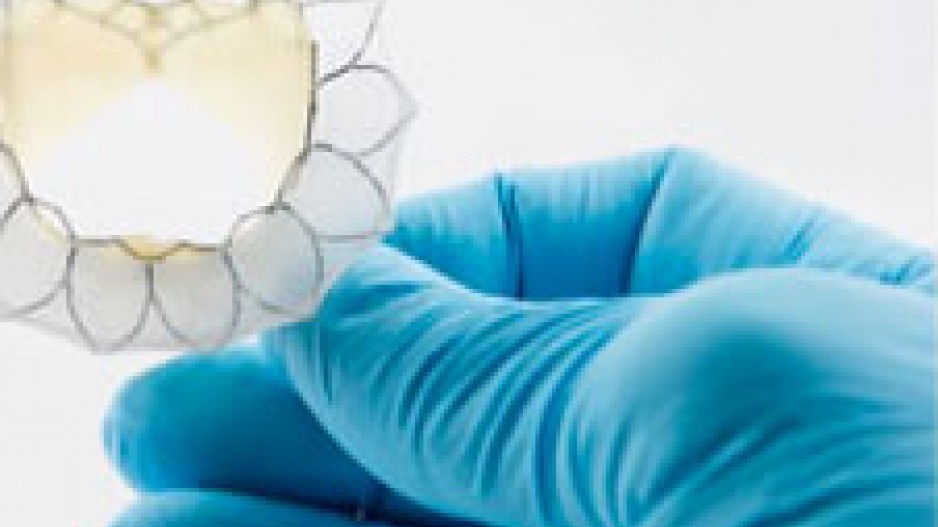A device developed by Vancouver's Neovasc Inc. (TSX-V:NVC) for fixing leaky heart valves without requiring open heart surgery has had its first successful implant performed at St. Paul's Hospital.
The device – called the Tiara – has been nearly a decade in the making. It was successfully implanted in a 73-year-old patient by a team of surgeons at St. Paul's on January 30.
It was designed to fix a condition called mitral regurgitation, in which the mitral valve in the heart does not close properly, allowing blood to leak from the left ventricle to the left atrium – a condition that typically requires cardiac bypass surgery.
Similar devices have been used for years to fix problems in the aortic valve, but the mitral valve is more problematic, and to date no one has been able to successfully develop a device that can be inserted via catheter.
The patient who received the device was considered a "no option" patient, who would not likely have survived open-heart surgery.
"It's been four and a half days and he's doing well," Neovasc CEO Alexei Marko told Business in Vancouver February 3. "The significance of this is that this procedure has never actually been done before."
The implant was done by surgeons Anson Cheung and John Webb at St. Paul 's Hospital, with the support of a cardiologist from Belgium and Shmuel Banai, director of interventional cardiology at Tel Aviv Medical Center in Israel, who is Neovasc's medical director.
Neovasc's stock took a 35% bump on Monday with the announcement of the successful procedure, closing at $4.65 per share.
The Tiara was designed as an alternative to bypass surgery, a highly invasive four-hour procedure. The device is inserted using a transcatheter, which requires only a small incision.
"The people that we would treat really would be those that are refused for surgery," Marko said. "So they're essentially non-operable patients."
Formed in 2008, Neovasc is a medical device company specializing in devices for cardiovascular diseases and conditions. Its one revenue-generating product is tissue made from cows and pigs that is used in cardiac and vascular surgery.
The company also has another product that is close to being ready for market – the Coronary Sinus Reducer, used for treating refractory angina. It has received CE Marking approval for testing in the European market.




